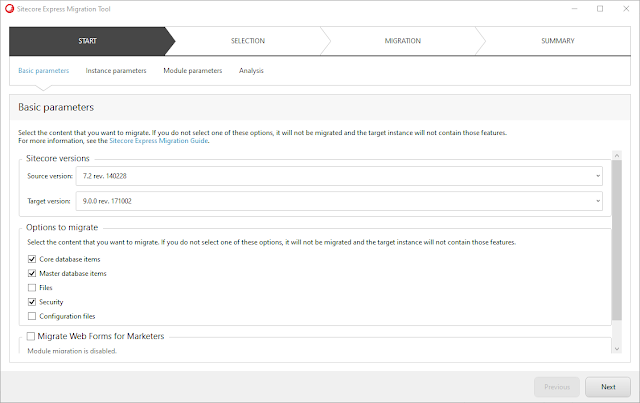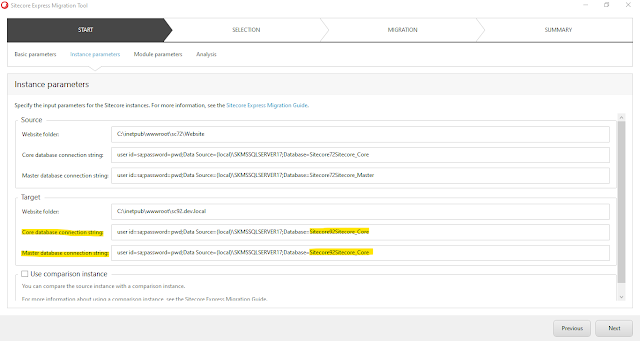I have graphQL query for my JSS
app as
Here "QuestionList" is a list field for which I am getting output with Item ids separated by pipe "|" as
But instead of this items ids, how to get multilist items details?
For this we must use "targetItems" cluase as
As you can observe here we can use strongly type items "Question" inside of "targetItems". Its output is
I hope this trick helps you to write GraphQL queries in better way for Sitecore JSS app.
{
search(fieldsEqual: [{name: "_fullpath", value: "/sitecore/content/abc"}]
, keyword: "") {
results {
items {
item {
... on Brand {
heading {
value
}
questionList {
value
}
}
}
}
}
}
}
Here "QuestionList" is a list field for which I am getting output with Item ids separated by pipe "|" as
"questionList": {
"value": "{79BADBCE-3824-4664-B74C-D5D931154E86}|{2D0FCE78-8377-4A1E-B47B-A3BDBB6D8D62}"
}
But instead of this items ids, how to get multilist items details?
For this we must use "targetItems" cluase as
{
search(fieldsEqual: [{name: "_fullpath", value: "/sitecore/content/abc"}
], keyword: "") {
results {
items {
item {
... on Brand {
heading {
value
}
questionList {
value
name
targetItems {
id
name
... on Question
{
questionstatement {value}
}
}
}
}
}
}
}
}
}
As you can observe here we can use strongly type items "Question" inside of "targetItems". Its output is
{
"data": {
"search": {
"results": {
"items": [
{
"item": {
"heading": {
"value": "This is
Heading"
},
"questionList": {
"value": "{79BADBCE-3824-4664-B74C-D5D931154E86}|{2D0FCE78-8377-4A1E-B47B-A3BDBB6D8D62}",
"name": "questionList",
"targetItems": [
{
"id": "79BADBCE38244664B74CD5D931154E86",
"name": "Question 1",
"questionstatement": {
"value": "Question 1"
}
},
{
"id": "2D0FCE7883774A1EB47BA3BDBB6D8D62",
"name": "Question 2",
"questionstatement": {
"value": "Question 2"
}
}
]
}
}
}
]
}
}
}
}
I hope this trick helps you to write GraphQL queries in better way for Sitecore JSS app.



